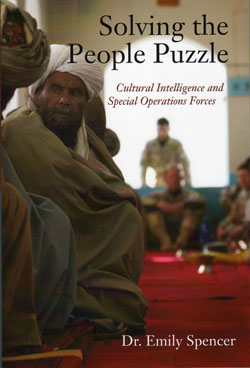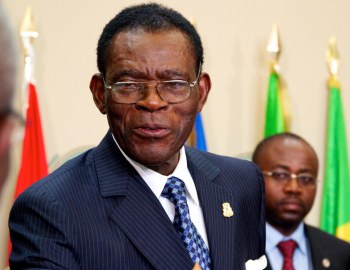 The North
Atlantic alliance has a rich portfolio of military interventions and operations
throughout the world, a portfolio which not only gathers successful military
involvements, but also wide criticism for failures to protect and secure
civilians in areas struck by the curse of war and conflict. The Kosovo
intervention and the operations in Afghanistan are striking examples of how
objective-driven military strategies overcome the necessity to ponder the
implications of intervention and operations on civilians and non-military personnel.
The North
Atlantic alliance has a rich portfolio of military interventions and operations
throughout the world, a portfolio which not only gathers successful military
involvements, but also wide criticism for failures to protect and secure
civilians in areas struck by the curse of war and conflict. The Kosovo
intervention and the operations in Afghanistan are striking examples of how
objective-driven military strategies overcome the necessity to ponder the
implications of intervention and operations on civilians and non-military personnel.
A working
plan mainly based on strategic bombings (as in Kosovo), or on short term
efficient destruction of enemy operational forces and arms is all but
considerate to the importance to protect civilians both in the short and long
term of ongoing conflicts. It is important and indeed crucial to assess the
success of any intervention by its potential to protect the civilians on the
ground rather than by the potential losses the intervention can incur on hostile
forces. In the 21st century, aerial supremacy is fading as main
course of action to defeat ground forces, especially that today’s targeted
forces are not conventional armies but militias with street warfare techniques.
Resolving to aerial bombings and drone strikes is condemning the conflict to
bear heavy casualties on civilians since the hostile militias (ex: al Qaeda, Al
Shabab…) take from civilian residential blocks footholds and grounds to launch
rocket attacks and furtive assaults. This not only leads to embarrassment with
local administrations and authorities, but puts at risk the success of any
military intervention since it alienates the foreign troops on the ground and
catalyzes rogue operations as it has been happening in Afghanistan with the
NATO led coalition.
The
solution then?: A rising field of military intelligence which studies and
analyzes the subtleties of the cultural mix of targeted areas, and adapts the
missions to the sensitivities of the society in order to build strong
collaboration with local civilians instead of keeping them on the sidelines.
Cultural intelligence, as I came to understand through a lecture I attended in
Abu Dhabi and through a conversation I had with a US intelligence personnel in
Morocco, is rising to prominence in international affairs, defense and security
agendas, a rise which started with the gulf war and kept on gaining interest
through the following military conflicts which spanned in the Middle East and
elsewhere. A military intervention can never be won by planes or troops only,
it is far and foremost won by the establishment of trust between the locals and
the intervening troops, and also though the creation of tensions if not
repugnance towards the operating militias in the region.
NATO
operating officers and troops ought to understand the complexities of the
boundaries they operate within, and to do so require a clear grasp of the
language, religion, traditions and customs as well as the ethnical tensions
existing in order to exploit them in achieving key goals with minimal losses of
troops and civilians. A NATO leadership which overlooks the tensions between
Shias and Sunnis, tribal affiliations and secessionist movements will induce
civil war confrontations after any military intervention (Kurds/Shias/Sunnis
tensions in Iraq, Sunni/Shia divide in Syria, Tribal conception of power in
Libya and Yemen), and these are the byproducts of war which inflict the
greatest losses in civilian ranks.
NATO
strategies in future military interventions should attend to key points amongst
which is a thorough understanding of the tribal, religious and ethnical
discrepancies, and based on such assessment, any military intervention should
aim at inflicting defeat upon the hostile force and establishing a distribution
of power in which the ruling majority before the intervention is likely to
secure control over state management. Such distribution of power should not
empower authoritarian majorities against the interest of existing minorities,
but should secure arrangements and political pacts which will render any future
majority-led repression impossible. To do so, NATO should attend to the
destruction of most of the hostile groups’ military arsenal; with the systematic
elimination of its key figures I order to transform its leadership into a void
and obsolete center of command. Furthermore, NATO officials should empower
dissidents among a targeted regime or militias through financing and
intelligence support in order to break down the efficiency of the target and
deviate its focus from external confrontations towards internal struggles. An
example is the Iraqi case: with former ruling Sunni elite, today’s Iraq
empowered Kurds and Shias is in total chaos due to sectarian conflicts raging
throughout the nation. If the coalition intervening in Iraq weakened the Baath
party and encouraged dissidence amongst its rank, facilitating the
restructuration of the regime without necessary inducing its collapse, a Baath
regime with moderate approach to the US and with a fierce grasp on the Iraqi
sectarian mix could have prevented the civil war which tears the country apart
today.
 In other
cases such as a potential intervention in Syria, NATO’s strategy should dismiss
air strike due to the urban density of the country (unlike Libya where air
strikes were successful due to low urbanization), instead prioritizing proxy
intervention and regional interference. With direct confrontation, NATO
strategy is ultimately deeming the coalition to severe human losses both in the
military and civilian ranks because of the blending of fighters, both rebels
and regime troops, in the urban setting. A NATO airstrike would be as
disastrous as its previous intervention in Kosovo, thus utilizing ground forces
acquainted with the geography, demographics, culture and religious environment
instead of NATO personnel would be far more successful.
In other
cases such as a potential intervention in Syria, NATO’s strategy should dismiss
air strike due to the urban density of the country (unlike Libya where air
strikes were successful due to low urbanization), instead prioritizing proxy
intervention and regional interference. With direct confrontation, NATO
strategy is ultimately deeming the coalition to severe human losses both in the
military and civilian ranks because of the blending of fighters, both rebels
and regime troops, in the urban setting. A NATO airstrike would be as
disastrous as its previous intervention in Kosovo, thus utilizing ground forces
acquainted with the geography, demographics, culture and religious environment
instead of NATO personnel would be far more successful.
The rebel networks,
evolving and getting more complicated, are losing the structural basis they
were first based on. The disruption in the chain of command is what leads to
unpredictable situations post-regime fall such as that in Libya were militias
outside the authority of the state proliferate. The NATO, by channeling
efforts, resources, intel and personnel in a directed flow can indeed establish
a rebel structure which is organized in the same fashion as conventional
military and prone on being converted into an armed authority wing under a
single command. This will greatly reduce collateral damages emerging from
uncontrolled military units and will enhance the efficiency of rebel operations
against rogue states.
Besides the
military nature of its operations, NATO should conduct nation building efforts
through programs aimed at improving the socio-economic conditions of the country
targeted, as it is the best way to win the hearts and minds of local populace
who are the best actors to exploit and direct towards leading insurgency
against authoritarian states and terrorist groups. An inside rejection of a
regime or repressive militia is far more powerful in determining the course of
action domestically, and way more inexpensive in terms of humanitarian losses.
As civilian resources are and will always be the key decisive currency of any
conflict or resolution, it is necessary and critical for NATO to adopt
civilian-friendly strategies which not only will boost its reputation
cross-seas, but will also make from risky operations with alarming consequences
a scarce commodity in the 21st century.
Mohamed Amine Belarbi





